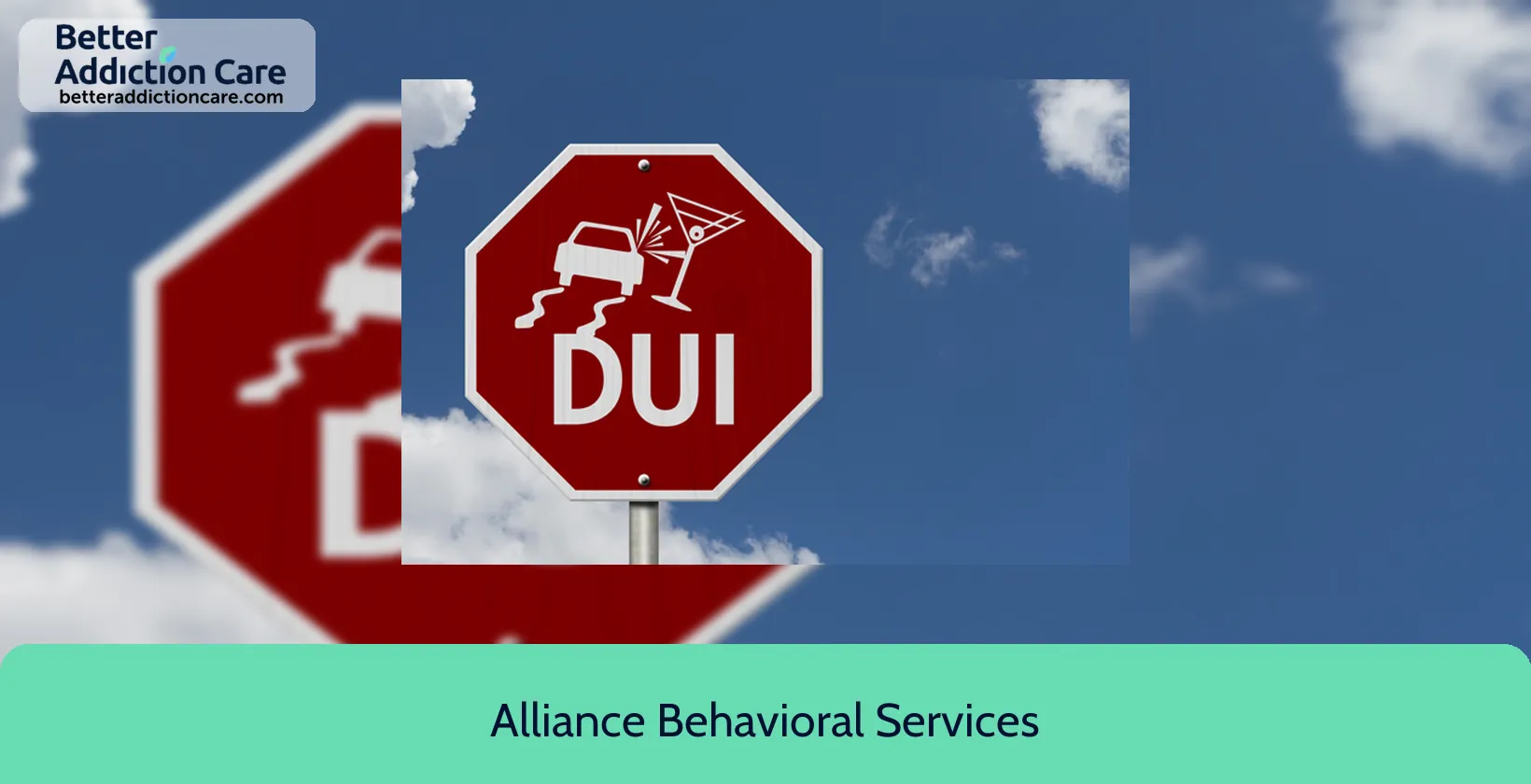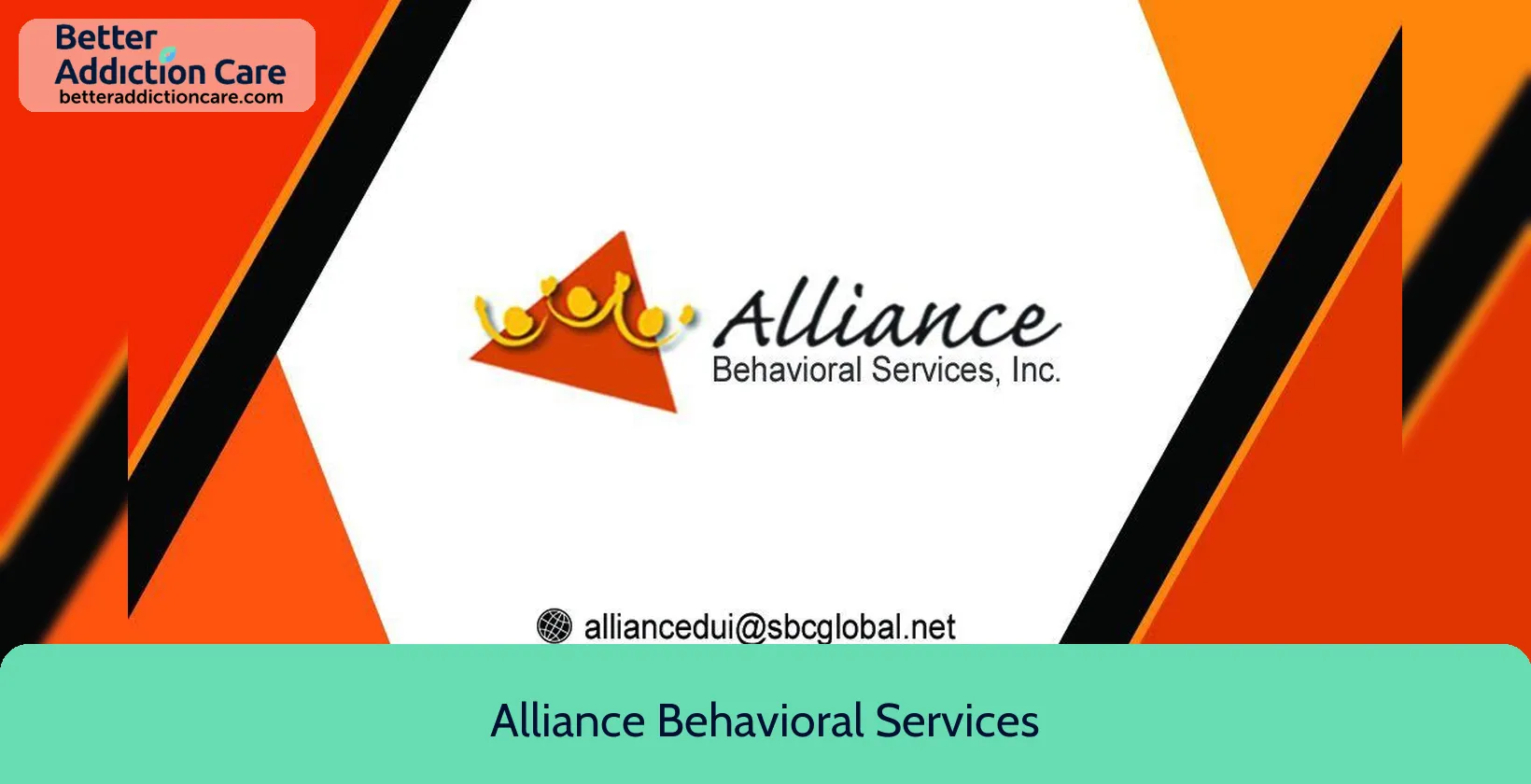Alliance Behavioral Services
Overview
Alliance Behavioral Services is a substance abuse treatment center for people seeking treatment near Cook County. As part of their treatment modalities for recovery, Alliance Behavioral Services provides cognitive behavioral therapy, substance use disorder counseling, and group counseling during treatment. Alliance Behavioral Services is located in Chicago, Illinois, accepting cash or self-payment for treatment.
Alliance Behavioral Services at a Glance
Payment Options
- Cash or self-payment
Assessments
- Comprehensive substance use assessment
- Screening for mental disorders
- Screening for substance use
Age Groups
- Young adults
- Adults
- Seniors
Ancillary Services
- Specially designed program for DUI/DWI clients
Highlights About Alliance Behavioral Services
6.71/10
With an overall rating of 6.71/10, this facility has following balanced range of services. Alcohol Rehabilitation: 8.00/10, Drug Rehab and Detox: 6.00/10, Insurance and Payments: 6.00/10, Treatment Options: 6.85/10.-
Alcohol Rehabilitation 8.00
-
Treatment Options 6.85
-
Drug Rehab and Detox 6.00
-
Insurance and Payments 6.00
Accreditations
State department of health:

Government agencies issue State Licenses, granting rehabilitation organizations permission to operate their businesses legally within specific geographic regions. The licenses needed for legal operation are typically determined by the type of rehabilitation program offered by a facility and its physical location.
Federally Qualified Health Center:
Federally Qualified Health Center (FQHC) accreditation is a process of evaluation and recognition by the federal government for community health centers that provide comprehensive and accessible healthcare services to underserved populations. FQHC accreditation is essential for centers to receive federal funding and to ensure that they meet standards for quality, patient-centered care.
Treatment At Alliance Behavioral Services
Treatment Conditions
- Alcoholism
- Substance use treatment
Care Levels
- Outpatient
- Intensive outpatient treatment
- Regular outpatient treatment
- Aftercare
Treatment Modalities
- Cognitive behavioral therapy
- Substance use disorder counseling
- Group counseling
- Intervention Services
- Motivational interviewing
Ancillary Services
Languages
- Spanish
- Other languages (excluding Spanish)
- Portuguese
Additional Services
- Pharmacotherapies administered during treatment
- Discharge Planning
- Breathalyzer or blood alcohol testing
Get Help Now
Common Questions About Alliance Behavioral Services
Contact Information
Other Facilities in Chicago

7.03

6.96

6.68

6.68

6.68

7.05

6.80

6.53
DISCLAIMER: The facility name, logo and brand are the property and registered trademarks of Weiss Memorial Hospital - Behavioral Health Outpatient Center, and are being used for identification and informational purposes only. Use of these names, logos and brands shall not imply endorsement. BetterAddictionCare.com is not affiliated with or sponsored by Weiss Memorial Hospital - Behavioral Health Outpatient Center.


